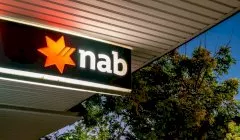Invest
Liberal economics has led Australia to a ‘dead end’: Paul Keating
Former Labor prime minister Paul Keating has warned of the threats of extreme inequality, while arguing that liberal economics are “going nowhere”.
Liberal economics has led Australia to a ‘dead end’: Paul Keating
Former Labor prime minister Paul Keating has warned of the threats of extreme inequality, while arguing that liberal economics are “going nowhere”.

Speaking at a book launch in Queensland last night, Mr Keating said there’s a significant inequality gap in Australia that can only be filled with policy.
“There's got to be a shift, and the shift will have to come from government," Fairfax Media reported Mr Keating saying.
"That sort of income distribution inequality becomes a curse, a cancer on a place. It's a horror story, unless there is a set of important changes."
He was launching the book Fair Share: Competing Claims and Australia’s Economic Future, co-authored by University of Queensland School of Political Science and International Studies researcher Professor Stephen Bell and former Department of the Prime Minister and Cabinet secretary Dr Michael Keating, AC.

Mr Keating argued that inequality had been exacerbated by the threat of artificial intelligence on jobs, and contended that the advent of 21st century technology simply saw wealth channelled back to a small group of the wealthy who did not funnel the cash back into the economy.
“These people are totally disconnected with the ordinary people of their country. What will happen is that the wealthy people will just pull away,” Mr Keating said, according to News Corp.
Looking back on his tenure as treasurer under the Bob Hawke government, Mr Keating said the welfare system protected the vulnerable while promoting wage growth.
However, he argued that liberal economics are no longer the best way to address 21st century challenges.
“Liberal economics is going nowhere,” Mr Keating said.
“It has now led us into a kind of dead end.”
Mr Keating, or at least his policies, made headlines this week after current Labor leader Bill Shorten announced plans to scrap cash refunds on excess dividend imputation credits.
The original dividend imputation system was brought in by Mr Keating to avoid double taxation on dividends from company profits. This system allowed shareholders to apply imputation credits to their tax bill to decrease overall tax liability.
However, the John Howard government later brought in an additional concession allowing individuals and superannuation funds to accrue a cash refund if their imputation credits were larger than the tax they owed.
The proposal sparked widespread backlash from superannuation fund managers, the SMSF sector, shareholder associations and the current Treasurer, Scott Morrison, who said, "Labor's latest tax hike is a $59 billion slug on more than 1 million pensioners, retirees and low income earners who will get taxed twice by Labor on what they earn from investing their hard earned savings.”
Mr Shorten disagreed, arguing that the Howard-era changes to the system meant Australia is now the only OECD country with a fully refundable dividend imputation credit system.
He said this concession has grown at a rapid rate to now cost the budget more than $5 billion a year.

Spending
Household Spending Pops, Rate Hike Looms: A CFO Playbook from an Australian Retail Case
Fresh ABS data shows household outlays running hotter than expected, particularly in services—stoking calls for an RBA move as early as February. For operators, the macro headline is simple; the ...Read more

Spending
State Street economist comments on softer-than-expected CPI data
In light of the latest Consumer Price Index (CPI) data release, Krishna Bhimavarapu, APAC Economist at State Street Investment Management, has provided insight into the implications for the Australian ...Read more

Spending
Moneysmart study reveals Gen Z women more concerned about finances than men
A new research conducted by ASIC’s Moneysmart has unveiled the heightened levels of stress and concern regarding finances and the cost of living among Australian Gen Z women compared to their male ...Read more

Spending
The cost of politeness: Aussies out of pocket by $1,350 due to 'awkward tax'
It's the time of year when Australians dive into their pockets for festive events and gatherings, yet a recent study by PayPal suggests that many are too polite, or perhaps too embarrassed, to ask for ...Read more

Spending
Aussies can ‘NAB Now Pay Later’ with the last major bank to embrace BNPL
NAB has become the latest bank to enter the BNPL market. Read more

Spending
Aussie households spent $368 a week on transport after petrol price surge
Fuel costs have increased by 40 per cent over the past year, a new report from the Australian Automobile Association has revealed. Read more

Spending
Voters say reducing the cost of living should be the government’s top priority
Aussies have ranked high cost of living as the top issue that needs to be addressed by the next government. Read more

Spending
Bodies back Labor’s commitment to stronger BNPL regulation
All parties should commit to stronger regulations for the BNPL sector, according to Financial Counselling Australia. Read more

Spending
Household Spending Pops, Rate Hike Looms: A CFO Playbook from an Australian Retail Case
Fresh ABS data shows household outlays running hotter than expected, particularly in services—stoking calls for an RBA move as early as February. For operators, the macro headline is simple; the ...Read more

Spending
State Street economist comments on softer-than-expected CPI data
In light of the latest Consumer Price Index (CPI) data release, Krishna Bhimavarapu, APAC Economist at State Street Investment Management, has provided insight into the implications for the Australian ...Read more

Spending
Moneysmart study reveals Gen Z women more concerned about finances than men
A new research conducted by ASIC’s Moneysmart has unveiled the heightened levels of stress and concern regarding finances and the cost of living among Australian Gen Z women compared to their male ...Read more

Spending
The cost of politeness: Aussies out of pocket by $1,350 due to 'awkward tax'
It's the time of year when Australians dive into their pockets for festive events and gatherings, yet a recent study by PayPal suggests that many are too polite, or perhaps too embarrassed, to ask for ...Read more

Spending
Aussies can ‘NAB Now Pay Later’ with the last major bank to embrace BNPL
NAB has become the latest bank to enter the BNPL market. Read more

Spending
Aussie households spent $368 a week on transport after petrol price surge
Fuel costs have increased by 40 per cent over the past year, a new report from the Australian Automobile Association has revealed. Read more

Spending
Voters say reducing the cost of living should be the government’s top priority
Aussies have ranked high cost of living as the top issue that needs to be addressed by the next government. Read more

Spending
Bodies back Labor’s commitment to stronger BNPL regulation
All parties should commit to stronger regulations for the BNPL sector, according to Financial Counselling Australia. Read more








